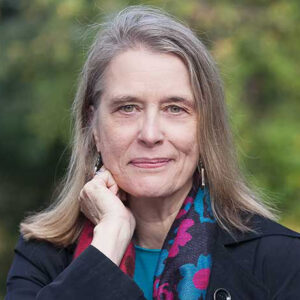‘It’s not what you know; it’s who you know.’ is a truism with an edge. It instructs us that the well-connected will always have better professional and social opportunities. But what about the newcomer? For us, the ‘who you know’ can be very limited. This is a serious dilemma as we try to establish ourselves in a new place.
While we may have excellent skills and a good professional history, no one knows enough about us to care. It can be very frustrating for the newcomer who has to accept that our professional and personal opportunities may be limited because we are an unknown quantity.
But if we shift perspective, it’s easy to understand. As a newcomer, we have not earned our place in a community. We are extraneous. And, most importantly, can we to be trusted? It takes time to build trust and the newcomer is competing with people who may have lived and worked in one place for their entire lives.
After moving to Seattle, Washington, I employed a professional development firm to help advise me on how to build a professional network. They told me to begin with one personal referral (I was given a person’s name by a friend of my sister’s). Then I was instructed to send them an email with my resume and to ask to speak with them by telephone. It was important to assure them that I was not going to be asking for a job so they did not feel uncomfortable. After preparing questions, I called the individual and shared my professional background and asked for any advice they could give me. Towards the end of the conversation, I asked if they would be willing to refer me to two other people who might help me learn more about potential professional opportunities. They agreed. As instructed, I kept careful notes from each conversation, sent thank you cards and promised to stay in touch.
Using this formula for each call, my contacts multiplied rapidly and my knowledge increased. I still didn’t have a job but I was learning more about local organisations and where it might be possible to find employment. At this point, I was looking for an event management job since I felt this skill would translate best into my new working environment.
The process was frustrating, disheartening and time-consuming but I felt that I had no other recourse. (Ironically, my husband’s rich Aussie accent made him instantly employable and he began working for Microsoft campus security within a month of our arrival.)
While looking for permanent employment, I worked for a temp employment agency that sent me on an array of humbling jobs which included cleaning a Microsoft campus catering elevator caked in grease, distributing free coffee and chocolate calcium squares on a street corner from a pop-up booth, and cleaning a smoke damaged house with a crystal chandelier with at least a hundred glass medallions. I cleaned each one.
My reentry into the United States was from the bottom-up and I did recognise how privileged I was to have a college education and to be white and middle-class. Eventually, I found a temporary coordinators position at the annual Seattle Folk Festival, which in a convoluted way led to my permanent job at the University of Washington Libraries.
The phrase ‘It’s not what you know; it’s who you know.’ Reveals a genuine social divide. It sits comfortably next to phrases like ‘the haves and the have nots’. The ‘who you know’ is dependent upon so many different things from social class and education to family connections, financial circumstances and luck.
